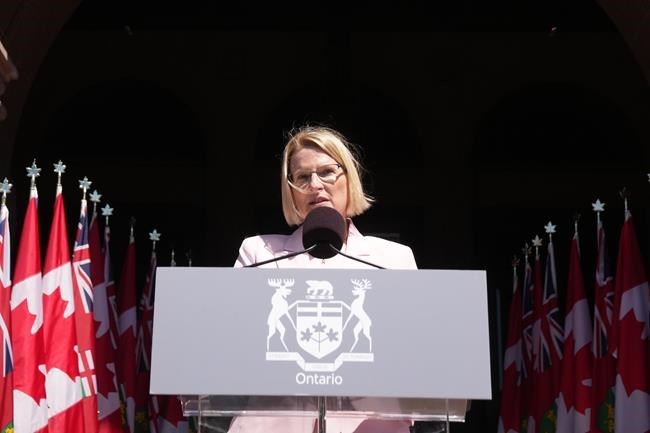TORONTO — Ontario Health Minister Sylvia Jones' plan to stabilize the health-care system includes increasing surgeries performed at private clinics but covered by OHIP, covering the exam and registration fees for internationally trained nurses, and sending patients waiting for a long-term care bed to a home not of their choosing.
The plan comes as nursing staff shortages have seen emergency departments across the province close throughout the summer for hours or days at a time.
Language in the document suggests more of a role for privately delivered but publicly covered services, with the government saying it will invest more to increase surgeries in pediatric hospitals and existing private clinics covered by OHIP. It is also considering options for further increasing surgical capacity by increasing the number of those procedures performed at "independent health facilities."
Jones said Ontario needs to be "bold, innovative and creative" when looking for ways to improve the health system.
"There are some who will fight for the status quo no matter what," she said at a press conference announcing the plan.
"They’re ideologically opposed to change or improvements. We won't accept that. We can’t accept that. People want better health care."
The plan also includes modifying a program that can deploy nurses full-time across multiple hospitals in a region, and expanding a program for mid-to-late career or retired nurses to mentor newer nurses.
The province will temporarily cover the exam, application and registration fees for internationally trained and retired nurses, saving them up to $1,500, and plans to invest up to $57.6 million over three years to increase the number of nurse practitioners working in long-term care homes.
In long-term care, the government plans to introduce legislation today that will allow patients awaiting a bed to be transferred to a "temporary" home while they await space in their preferred home, and is taking 300 beds that had been used for COVID-19 isolation and making them available for people on wait lists.
This report by The Canadian Press was first published Aug. 18, 2022.
The Canadian Press
